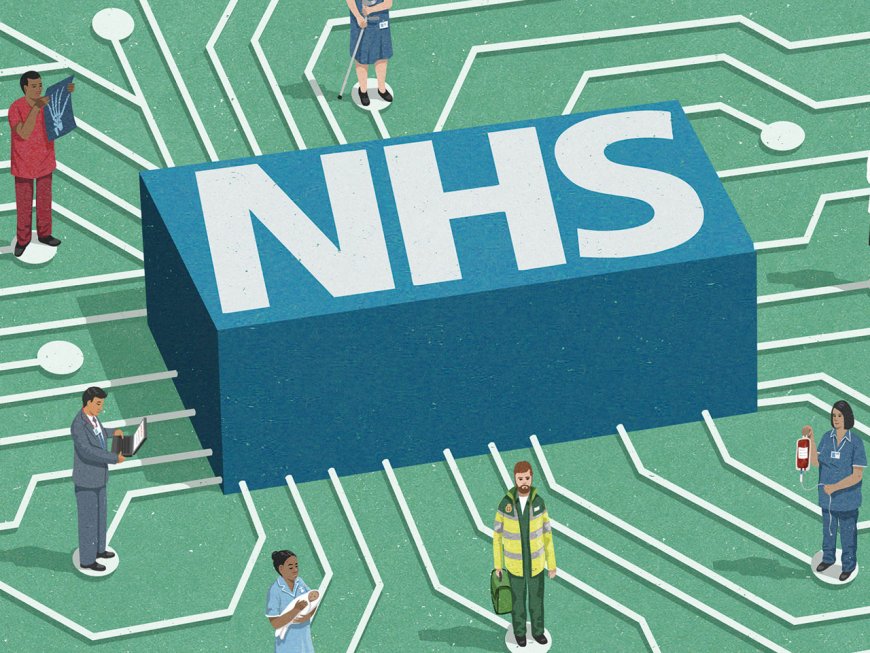A Majestic Betrayal: The UK Government’s Systemic Dismantling of the NHS
The National Health Service, once a gleaming bastion of post-war idealism, now stands as a spectral shadow of its former self—a crumbling edifice hollowed out by decades of political negligence, myopic policymaking, and a grotesque dereliction of moral duty. What was once a global exemplar of universal healthcare has been reduced to a fractured, overburdened shell, buckling under the weight of catastrophic workforce shortages and a government content to watch it bleed out. This is not merely a crisis; it is a damning indictment of systemic rot.

A Majestic Betrayal: The UK Government’s Systemic Dismantling of the NHS
The National Health Service, once a gleaming bastion of post-war idealism, now stands as a spectral shadow of its former self—a crumbling edifice hollowed out by decades of political negligence, myopic policymaking, and a grotesque dereliction of moral duty. What was once a global exemplar of universal healthcare has been reduced to a fractured, overburdened shell, buckling under the weight of catastrophic workforce shortages and a government content to watch it bleed out. This is not merely a crisis; it is a damning indictment of systemic rot.
The Physician Drought: A Failure of Foresight, A Legacy of Exploitation
The NHS’s doctor shortage has metastasized into a full-blown existential threat. As of 2023–2024, thousands of medical positions languish unfilled across secondary care—a vacuum so vast it threatens to swallow the system whole. While the government boasts of expanding medical school slots, these efforts are laughably inadequate, akin to bailing out a sinking ship with a thimble. Demand for care surges relentlessly, yet the pipeline of homegrown doctors remains pitifully constricted. The result? A shameful reliance on plundering talent from nations already crippled by their own healthcare crises. Over two-thirds of new NHS hires in certain sectors now hail from abroad, including countries like Nigeria and Zimbabwe—nations the UK itself labels as facing “critical” staff shortages. This is not recruitment; it is predation, a morally bankrupt stopgap that exposes both the NHS’s desperation and the government’s refusal to invest in its own people.
Nurses in Peril: Austerity’s Bitter Harvest
Parallel to this physician exodus lies the evisceration of nursing. The abolition of nursing bursaries in 2017—a decision as ideologically callous as it was economically nonsensical—strangled the domestic talent pool at its source. Applications plummeted; morale followed. Today, one in four NHS nurses is recruited from overseas, while those who remain drown under unsustainable workloads. Burnout is not an anomaly but a policy outcome. The government, having severed the lifeline of educational support, now watches as seasoned nurses flee and trainees buckle—a self-inflicted catastrophe masquerading as inevitability.
A Training System in Ruins: The Brain Drain Diaspora
At the heart of this collapse lies a training infrastructure corroded by neglect. British students, denied seats at home, are forced to seek medical education abroad—over 2,500 now study in Bulgaria alone, a staggering indictment of the UK’s abdication of responsibility. This is not merely a “gap” in planning; it is a hemorrhage of potential, a brain drain the government tacitly encourages. The message is clear: Britain no longer cultivates its own healers. It pillages them, exploits them, and grinds them into dust.
The Vicious Cycle: Burnout, Exodus, Collapse
The consequences are as predictable as they are dire. Overworked staff, pushed to breaking point, exit the profession in droves, perpetuating a death spiral of attrition. Each departure amplifies the burden on those who remain, eroding care quality and patient safety. The NHS, trapped in this feedback loop of despair, becomes less a healthcare provider than a churn of exhaustion and despair—a institution surviving on the fumes of its former glory.
A Government Unshackled from Reality
To attribute this crisis to mere “challenges” is an insult. It is the direct progeny of austerity dogma, Brexit-fueled isolationism, and a political class allergic to long-term planning. The government’s “solutions”—raiding red-list nations for staff, tinkering at the edges of training—are not fixes but admissions of guilt. They reveal a regime content to cannibalize the health systems of poorer nations rather than confront its own failures.
Conclusion: A Service on Life Support
The NHS’s workforce crisis is not an accident. It is a choice. A choice to prioritize short-term political wins over human lives, to outsource compassion, and to outsource guilt. As waiting lists balloon and staff weep in supply closets, the government offers platitudes, oblivious—or indifferent—to the rubble accumulating at its feet. The NHS, in its current form, is a tragedy in slow motion. And unless this administration confronts its own complicity in this collapse, the epitaph of the world’s most revered health system will read: Killed by negligence, buried by hubris.
The hour is late. The damage is profound. And the architects of this disaster remain unrepentant. What remains of the NHS is not a institution—it is a warning.













































